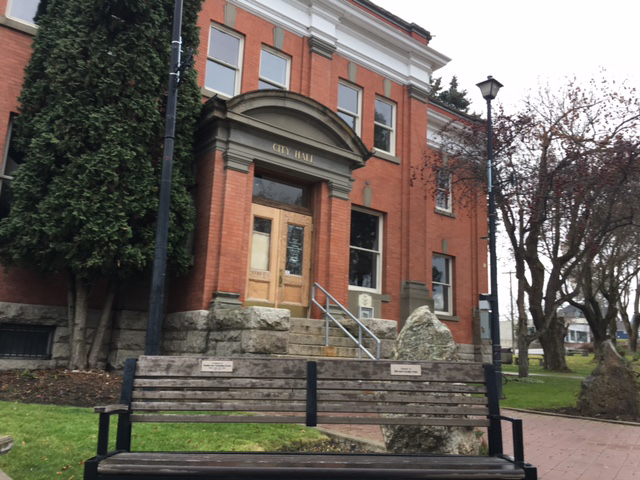City set to seek public opinion on services
The public perspective of the citizens in Grand Forks will be front and centre on municipal minds at the start of the new year.
The city is undertaking a community survey in January — pursuant to a directive from the Strategic Plan 2015-2019 — intended to gauge public satisfaction as it relates to the delivery of services to the community.
The survey will engage a representative sample of 1,000 randomly selected households to determine actionable steps — and adjust work plans if needed — to “meet, and better understand, public expectations.”
The city is planning to “educate” the public in the first three weeks of January, followed by a survey going out in the last week of that month.
The survey is nearly complete which will be vetted through council one last time before it goes out, said city deputy corporate officer/communications Sarah Winton.
She noted the survey approach would be based on “real world observations,” while the method of gathering data could be generalized to the population.
The survey can produce a large amount of data in a short time at a relatively low cost, Winton noted, but will assist in city planning and delivering results.
The survey will not require additional information from the population such as geographic location or age.
A final report and a presentation of the data will be made to council in February.
Recreation and culture committee of council being considered
A new recreational structure within the city and the regional district is now being considered.
The city’s chief administrative officer Doug Allin will be speaking with Regional District of Kootenay Boundary CAO John MacLean on the possibility of creating a recreation and culture committee to advise council on new policies, critical priorities and future directions to enhance recreation, parks and cultural services within the city.
On Nov. 10 the Grand Forks and District Recreation Commission passed a motion in support of the proposed recommendation to city council for the formation of a recreation and culture committee of council.
The concern is to get more recreational opportunities on the radar for the city, said Coun. Julia Butler.
“We don’t have funds designated for additional recreational opportunities and we have seen some fall through the cracks so far,” she said, alluding to an attempt to start a gymnastics club in the city recently.
She wondered why the current Grand Forks and District Recreation Commission could not accommodate new recreational opportunities.
RDKB Area D (rural Grand Forks) director Roly Russell said the recreation commission — as it is supported by rural Grand Forks and the City of Grand Forks — has a very specific mandate to attend to recreation programming to the aquatic centre and to the arena.
“So anything beyond that is out of the scope of the current structure,” he said.
Coun. Christine Thompson asked if the recreation department could not support other programs if they were to be offered.
“Where does the decision making come from to move ahead with those kinds of projects?” Russell asked. “Who informs and guides elected decision makers on those decisions, and where do those decisions go for conclusion?”
Allin said the city does not even know what sort of additional recreational services the citizens might want. If there were a joint agreement between the city and the regional district on the crafting of a recreational master plan it would give guidance on new opportunities, he said.
The proposed committee would need a recreation master plan in order to find out what people want, agreed Butler, and the committee of council and the regional district could also help with the start up of new programs.
“(Staff) is too overloaded to be doing all of these things so a committee needs to be formed to help gather this information and then come to council with recommendations on how to move forward,” she said.
“We are hearing a lot of different ideas, but we don’t have the time to sit down and make these decisions, that’s what a committee would do.”
Then the request could go to the regional district for consideration on the next agenda.
If there was a desire to create the committee it would be a conversation which rural Grand Forks and the City of Grand Forks would have to develop it as a regional district service, said Russell.
“If the city is interested, we can start the conversation to see what that would look like, but it would require the development of a new service of the regional district,” he said.
Allin suggested he have a conversation with the CAO of the regional district to understand the process and report back to council in January on how that governance model could work. The motion to direct Allin to schedule a conversation and report back was passed.






















